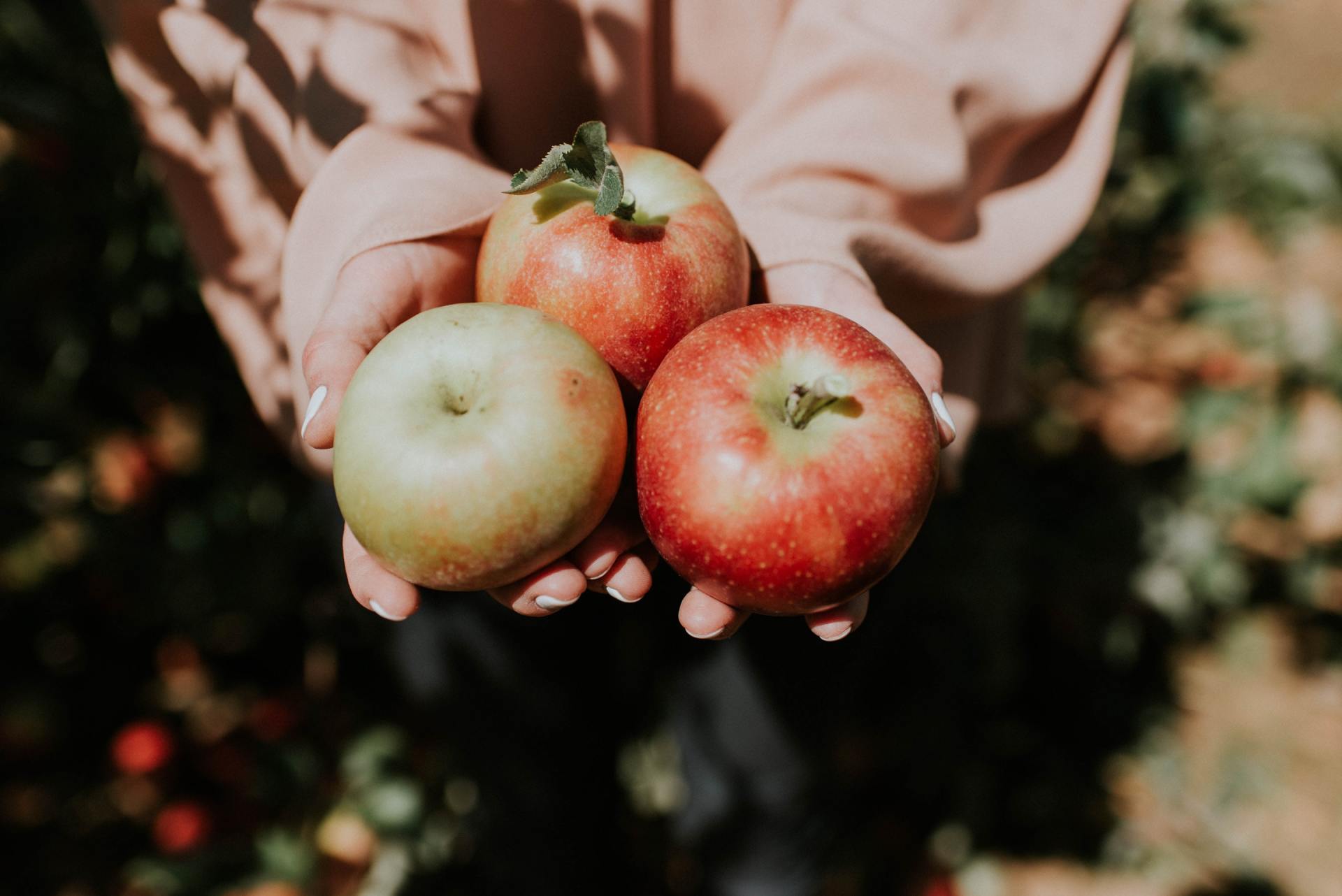This is a subtitle for your new post
Can Dogs Eat Apples?
Dogs are carnivores. This means they don’t need fruits or vegetables as part of their diet. But occasionally fruit or veggies can be ok if it’s the right fruit or vegetable.
Apples, for example, are an excellent source of vitamins A and C. Apples are also a good source of fibre for your dog. They are a great snack for older dogs as they are low in protein and fat. Before you give an apple to your favourite pooch ensure you remove the seeds and core first. Frozen apples make a good summer snack.
We all want to spoil our dogs and often share table scraps or our favorite snacks with them. We assume if food is OK for us to eat it is safe for them.
This is not necessarily correct.
Many human foods are perfectly safe for dogs, however, some are unhealthy and can be very dangerous. It is critical you understand which fruits and vegetables are safe for dogs to eat. The dog’s digestive system is different from the human digestive system. Feeding your dog the wrong foods can result in long-term health problems and can even lead to death in some extreme cases.
Apples contain high levels of nutrients which can be beneficial to your dog’s health. Too many apples, however, may cause gastrointestinal upset in dogs so like anything good, moderation is the key.
As long as you serve them correctly and safely to your dog, they are healthy treats which can be refreshing and tasty.
It’s very important though to always consult your veterinarian before giving your dog any foods we eat as humans, and this includes apples.
How Are Apples Good For Dogs?
If you are looking for an affordable, low calorie snack full of valuable nutrients that are good for dogs, apples are a great choice. They are an ideal snack or can be used as a reward during training, just make sure you serve them in moderation.
Apples are low in protein and high in fiber. This makes them good for digestive health and can be particularly good for dogs which diets don’t allow for high protein and fat.
Apples are a good source of vitamins A, C, and K, calcium and phosphorus. The antioxidants contained in apples may help with warding off cancer and reducing the symptoms of joint disease.
Feeding apples to your dog can also help improve their breath and dental health.
Are there ways Apples can be Bad For your Dog?
Seeds and cores. They are the main two things to be careful of when feeding apples to dogs.
Apple seeds contain trace amounts of cyanide, which is toxic.
Your dog would need to swallow a lot of seeds for the cyanide to have an adverse effect. If your pooch swallows a few seeds, it’s unlikely to cause them any harm. Although a few seeds are unlikely to harm them, you shouldn’t risk your dog’s health, so remove any seeds before you feed apples to them.
You probably wouldn’t like to eat the stems, so you don’t want to feed them to your dog. Remove the stems before giving the apple to them. Dogs have difficulty chewing the cores, they tend to firm and difficult and can be choking hazard. If swallowed, the cores can lead to gastrointestinal blockage.
The sugar content in apples can cause problems for dogs who suffer from cancer or diabetes. This is a good reason to feed your dogs apples in moderation. It is always a good idea to consult your vet before giving apples to your dog. Something else to be aware of, diarrhea and stomach upsets, even in healthy dogs, can be caused by giving your dog too many apples.
Be aware, many products have apple flavouring, artificial flavors or chemicals in them. Make sure you read the labels before you feed any apple-flavored human products to your dog. They can contain ingredients like xylitol which can be toxic to dogs. Don’t give your dog any products which have ingredients on the label you are unfamiliar with.
When choosing apples for your dog, it is always best to choose organic fruit. Many apples you find in supermarkets are coated with substances to make them look shiny and more appealing. They can also contain pesticides and herbicides so always wash the fruit before giving them to the pooch.
Like humans, dogs can develop allergies to certain foods. Although it is rare, allergic reactions can lead to the potentially life-threatening condition, anaphylaxis.
Signs of allergic reactions can include swelling, difficulty breathing, coughing, sneezing and other symptoms. If you see any of these signs stop serving the fruit to your dog and immediately contact your veterinarian.
Can dogs eat apples?
Now we know the answer is Yes, what’s the best way to feed apples to your dog?







